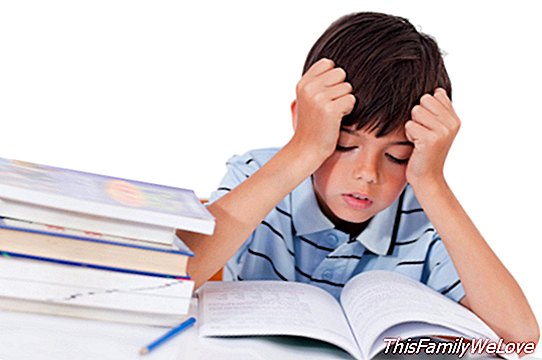Keys to reduce school failure, according to the OECD
Even though the dropout rate has dropped by 7 tenths in Spain during the first quarter of 2015, our country is still far from reaching the European objective of 2020: Reduce up to 15 percent the proportion of young people who do not study beyond ESO. Following the recommendations for all the groups involved in teaching to reduce school failure, according to the report presented by the OECD, could be of great help.
The study Low-achieving students: why are they left behind and how can they be helped? is a thematic report that results from the data that the OECD continues to extract from the PISA 2012 study. According to the results of the countries that have less school failure and early school dropout, the OCEDE advises "the early detection of poor student performance. "as a first measure, but also recommends these others:
Evaluations to reduce school failure
Some of the countries with the best results in PISA, such as Singapore, Hong Kong- China, Taiwan, South Korea and Japan, coincide in various measures such as:
- Make an early diagnosis, from Primary, and offer teachers and hours of support.
- Expect a lot from all the students.
- Offer support for migrant students.
- Establish support networks for and between less favored schools.
- Work with the educational communities to help students who need it.
Marcial Martín, Secretary of State for Education, states that "the final evaluation of Primary Education, which is being implemented in our educational system this 2015/2016 course and which did not exist in our country, is the result of recommendations that has been doing the OECD in its PISA reports, this assessment will allow the diagnosis of learning difficulties and the orientation and information necessary to intervene in cases of low school performance, the objective is to obtain the information that allows to make the most accurate decisions , adapting them to the needs of each student and center to personalize the teaching and learning processes and, in this way, achieve the improvement in the performance of the students ".
OECD recommendations for students, parents and teachers
The OECD report gives a series of recommendations to students and parents and teachers to improve poor student performance.
Students: keys to improve their school performance
- Attend class regularly and punctually.
- Do homework.
- Strive and continue despite the difficulties.
- Participate in extracurricular activities.

Parents and communities: keys to prevent and avoid school failure
- Encourage your children to make an effort.
- Offer you a quiet place to study or help with your homework.
- Have time to comment on what happened during the day.
- Participate in school center activities.
- Encourage community members to volunteer or donate resources to the school.
Teachers and management teams: keys to avoid early abandonment
- Have high expectations of all students, even those with the worst results.
- Organize supports for students who require it.
- Feel integrated in the school and set an example.
- Offer extracurricular activities.
- Be receptive to the demands and encourage parents to participate in the center.
OECD, keys for Public Administrations
Public administrations:
- Define low performance as a priority in the educational agenda.
- Identify students and schools with low performance and their evolution over time.
- Design strategies that address the factors associated with poor performance.
- Develop early diagnosis systems and supports for students who need it.
- Distribute extra resources to schools that concentrate less favored students.
- Reduce the repetition rate.
- Allow teachers to develop methodologies and resources to address the diversity of the class.
- Guarantee the centers sufficient autonomy so that they can respond to their needs.
- Evaluate your measures and changes.
Other factors that influence poor school performance
In this report, low performance is considered related to several factors observed in the student population, as well as factors associated with schools and the education system. They include aspects such as the socioeconomic and cultural status of families, migration, language spoken at home, geographical situation, family structure, relations with the school, family and community environment, etc.
On average, in the OECD countries, the probability of having worse results in mathematics is usually associated to factors such as: belonging to disadvantaged socio-economic strata, being a girl, being an immigrant, speaking a different language at home than at school, living In a single-parent family, living in rural areas, not having attended a nursery school or having attended only one year or less and repeat the course.
Marisol Nuevo Espín




